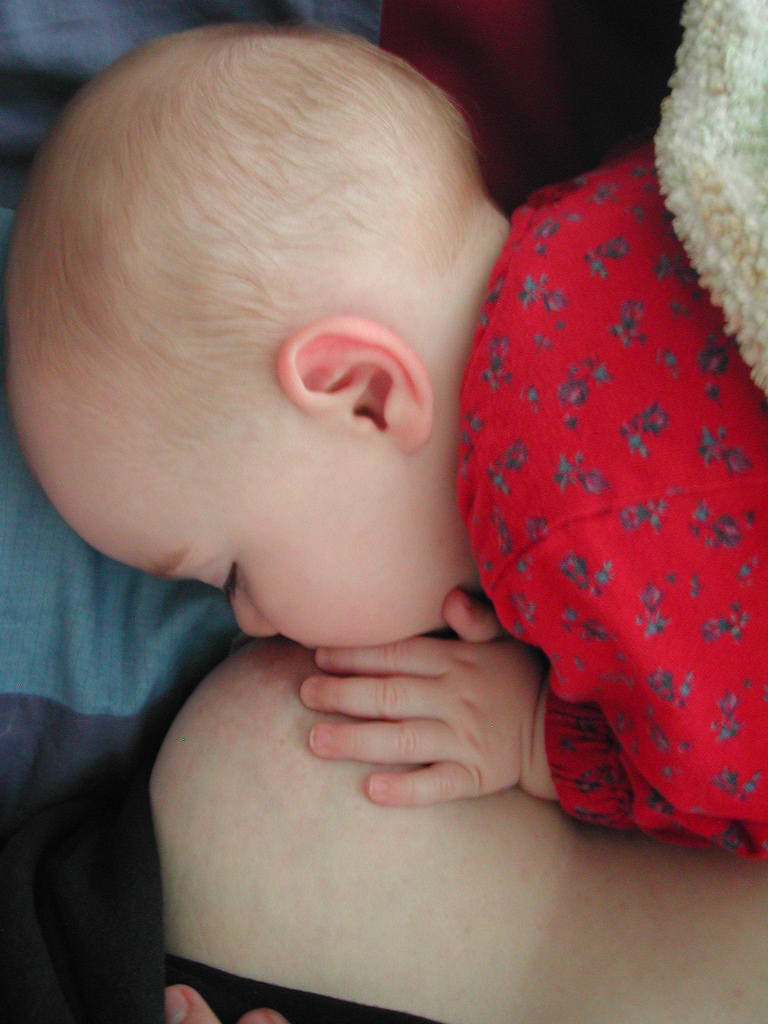Advertisement
Five Things You Need To Know About Sharing A Bed With Your Infant
My recent analysis of the current infant sleep recommendations led many people to ask a simple question: where, exactly, is it safe for my baby to sleep?
In a recent blog post that generated huge reader response, I went through why the current sleep recommendations from the American Academy of Pediatrics against all infant bed sharing have backfired.

Based on the analysis my colleague Linda J. Smith and I conducted, a few facts are clear: No sleeping infant situation is completely safe. Infants may die in cribs as well as in bed with their mothers. SIDS and sleep associated suffocation and strangulation are different entities, but share some overlapping risk factors.
Both result in the same tragic outcome, so the recommendations tend to be lumped together.
However, infant bed sharing is not as great a risk for sleep associated infant death as is exposure to smoke (both prenatal and after birth), falling asleep on couches or recliners with one’s infant or sleeping with an infant while under the influence of drugs and alcohol. For many years, studies have demonstrated that formula feeding is an independent risk factor for SIDS when compared to breastfeeding.
So here are five safety tips:
1. Mattress Alert
Even if you never plan to share your bed with your infant, the safest assumption is that you may sometimes unintentionally fall asleep there with him. Therefore, the best advice would be for every parent to make their bed as safe as possible. The mattress should be away from the wall or so tight that there is no gap where an infant could get entrapped. Some parents solve these issues by putting their mattress on the floor. The bed should be away from dangling cords that could cause strangulation. The surface should be firm, without heavy or fluffy covers or pillows near the baby. The baby should sleep on his back. He should be lightly dressed- no more clothing on the baby than the parents are wearing. The baby should never be swaddled in a shared sleep situation.
2. Feeding At Night
Avoid feeding your infant on a couch or recliner at night or when you are tired. (There are anecdotes about tragedies that have occurred when mothers have fed their infants in their own beds while sitting up. We don’t have any evidence on whether this is dangerous.) However, if you are breastfeeding and can do so laying down, that may be preferable to nursing in bed while sitting up so the baby cannot slide off into a dangerous location.
3. Quit Smoking
If you or anyone in your household smokes, do everything possible to quit. If you are pregnant, it is especially important to quit and not to restart smoking after your baby is born.
4. Drinking And Drugs? Sleep Elsewhere
If you or your partner are under the influence of alcohol or drugs, do everything possible to make sure your baby is sleeping in a different surface.
5. Support Breastfeeding
Our hospitals, employers, policy makers and society should do everything to support mothers to breastfeed as long as possible. Convincing evidence links formula feeding with greater than a three-fold risk of SIDS.
Formula fed infants sleep much more deeply than breastfed infants and wake less frequently. This decreased arousal may prevent their bodies from reacting if their heart rates go dangerously low or if their airways become compromised, explaining the increased risk of death.
Research shows that formula feeding is linked with at least 447 increased deaths per year of SIDS in the U.S.
Every parent is doing the best they can with the resources they have. But parents often get mixed messages from health care providers, unrealistic advice from the AAP or others, or their efforts to breastfeed are actively undermined by poor hospital maternity practices and aggressive marketing of infant formula. Don’t beat yourself up. Just do your best to beat the odds.
Melissa Bartick, M.D., M.Sc., is an assistant professor of medicine at Harvard Medical School and internist at Cambridge Health Alliance.